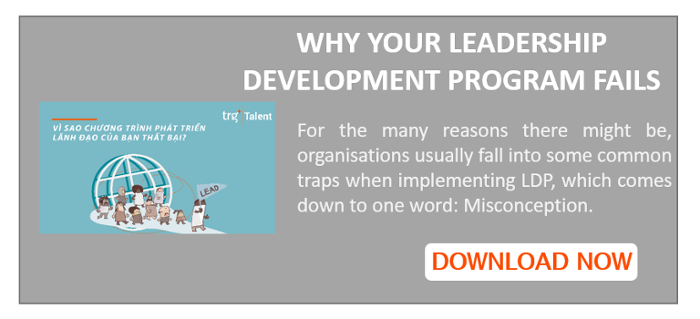Times of change present many challenges throughout organisations — especially for front-line managers, who need to implement change through their people and do more with less. Ironically, when you need your highly effective managers to perform at their very best, that’s when they are the most vulnerable to buckling under the pressure. This article will provide you with early warning signs of management derailment.
Poor management and lack of leadership can hinder your organisation's ability to reach its goals. A recent Gallup survey of more than one million employees found that the most prevalent cause for people leaving their company is their immediate supervisor and that poorly managed work groups are an average 50 percent less productive and 44 percent less profitable than well-managed groups.
Read more: Leadership Development: What Can We Learn from Toys-R-Us Failure?
.jpg?width=600&name=leadership%20(1).jpg)
Maintain a cadre of highly effective managers. Spot the advance warning signs that could prevent your managers from failing:
- Poor interpersonal and communication skills
- Ineffective team leaders
- Resistance to change
- Disappointing results
- Inability to see beyond their functional silo
5 signs of management derailment
The higher managers rise in an organisation, the more likely they are to develop blind spots to the danger signs that signal they are at a high risk of failing. Here is a quick summary of the Five Management Derailers and Remedies for Prevention:
1. Poor interpersonal and communication skills
- Understand the true root cause of conflict
- Understand the manager's natural style and motives
- Help the manager understand his natural communication style
2. Inadequate leadership skills
- Clarify the team's purpose and goals with the manager
- Help the manager understand his people
- Help the manager understand his leadership style and motivation
- Provide feedback from multiple constituents to the manager
3. Resistance to change
- Understand the manager's appetite for change
- Help the manager understand his natural aversion to change
- Ensure that the manager is focused on the organisation’s new priorities
4. Inability to deliver expected results
- Clarify the expected results and goals
- Understand the manager's degree of goal orientation
- Inspect what you expect
5. Inability to see beyond their functional silo
- Clarify how the manager's role supports others in the organisation
- Include the manager in at least one cross-functional team
- Establish at least one cross-functional goal for the manager
- Monitor the manager's developmental progress
The best way for you to evaluate the performance of managers in your organisation is to collect feedback from the people around them — their boss, their peers, and the people whose work they supervise. This method of collecting input from several sources in an employee's environment is very powerful exercise because it provides a truly honest assessment of how the manager and their performance are viewed by a variety of constituents.
Traditionally, supervisors meet with employees one-to-one to discuss performance. The peer feedback method gives colleagues the opportunity to respond to questions about the manager with complete confidentiality and honesty so that the employee's true performance can be assessed. Based on this feedback, employees and managers can compare the opinions of others with their own perceptions, positively identify their strengths, and pinpoint the areas of their job performance that could be improved.
Read more: Why is Collaborative Leadership Important?
The type of information an employee or manager receives from the peer feedback method will help them see themselves as others see them and allows them to seriously examine their behavior and its impact on others. They may receive information of which they may not have been previously aware.
Another great way to develop highly effective managers in your organisation is to challenge your organisation dynamics. Organisations often must undergo significant changes in their overall strategies, practices, and operational tactics. As companies evolve through various life cycles, its leaders and employees must be able to successfully align with organisational changes so that they can evolve as well. That's why the topic of organisational management and analysis has become an important part of today's workforce.
Want to know how to develop highly effective managers? Download our Whitepaper to read more >>
 English
English  Vietnamese
Vietnamese 

